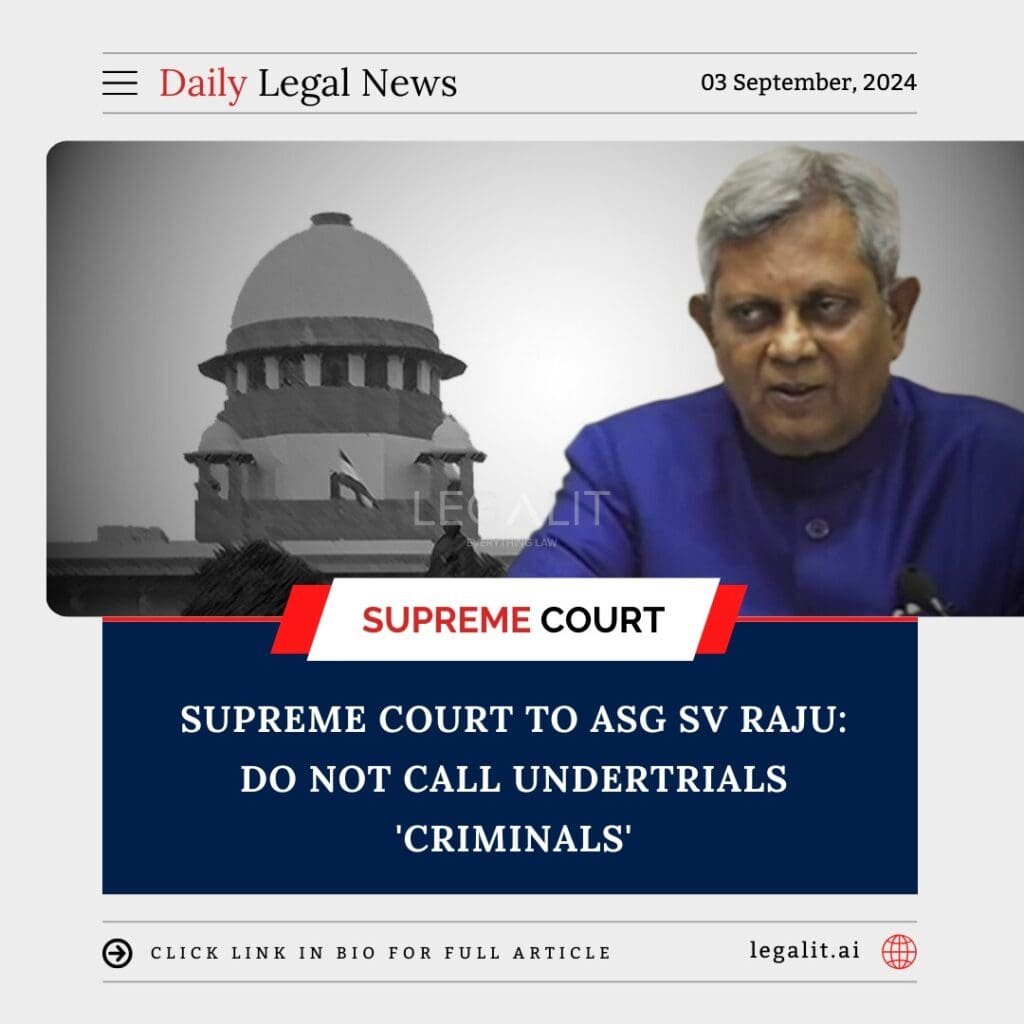
The Supreme Court of India has directed Additional Solicitor General (ASG) SV Raju not to refer to undertrials as “criminals,” emphasizing that individuals accused of crimes should not be labeled as such until they are proven guilty by a competent court of law. The court’s remarks came during a hearing, reinforcing the principle of the presumption of innocence, which is a cornerstone of the Indian judicial system.
Background of the Court’s Remarks:
The Supreme Court made these observations while hearing a case concerning the bail plea of an undertrial prisoner. During the proceedings, ASG SV Raju, representing the state, referred to the accused as a “criminal,” prompting a strong reaction from the bench. The justices reminded the law officer that the accused should not be prematurely labeled as a criminal before a court’s verdict establishes guilt.
Key Points of the Supreme Court’s Observation:
- Presumption of Innocence: The Supreme Court underscored the constitutional principle that every person is presumed innocent until proven guilty. This presumption is fundamental to ensuring fairness and justice in the legal process. Referring to undertrials as “criminals” undermines this principle and could prejudice public perception and the judicial process.
- Importance of Language in Court: The court highlighted the importance of using precise and neutral language when referring to individuals accused of crimes. Terms like “accused” or “undertrial” are appropriate until a person is convicted by a court of law. Labeling someone as a “criminal” without a conviction goes against the principles of justice and fairness.
- Impact on Fair Trial Rights: The Supreme Court’s remarks emphasized that premature labeling can adversely affect the accused’s right to a fair trial. It can lead to societal stigmatization, damage to reputation, and even impact the accused’s ability to defend themselves effectively in court.
- Need for Judicial Restraint: The bench called for judicial restraint and reminded law officers and advocates to adhere to established legal principles when arguing cases. The court stressed that the judiciary and legal professionals must uphold the highest standards of fairness and impartiality, especially in criminal matters.
Broader Implications of the Court’s Direction:
The Supreme Court’s direction to ASG SV Raju has broader implications for the legal system and reinforces several key principles:
- Reaffirmation of Legal Norms: The observation reaffirms the core legal norm that an accused person is innocent until proven guilty. It sends a strong message to all members of the legal community to avoid making statements that could compromise the integrity of the judicial process.
- Protection of Accused Rights: The remarks underscore the court’s commitment to protecting the rights of the accused, ensuring that they receive a fair trial and are not subjected to undue prejudice due to inappropriate labeling or language.
- Judicial Conduct and Language: The direction serves as a reminder to legal practitioners about the power of language and the need for careful, precise communication in court. It emphasizes that words used in court carry weight and can have significant implications for the accused’s rights and public perception.
Conclusion:
The Supreme Court’s directive to refrain from calling undertrials “criminals” reflects its commitment to upholding the principles of justice, fairness, and the rule of law. By emphasizing the presumption of innocence, the court reinforces the need for impartiality and careful use of language in legal proceedings. This observation serves as a reminder to all legal professionals to adhere to constitutional values and maintain the integrity of the judicial process.